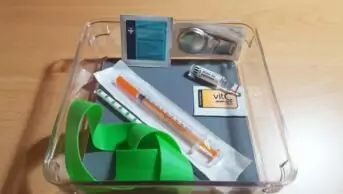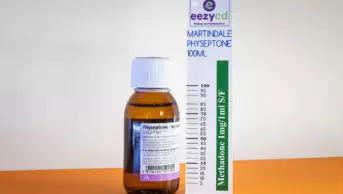
Shutterstock.com
The government has designated 15 additional synthetic opioids, including 14 nitazenes, controlled Class A drugs, following advice from the Advisory Council on the Misuse of Drugs.
In a statement published on 20 March 2024, the Home Office said it was placing these drugs under the strict controls “to prevent drug related deaths in the UK”.
It added that the move was in line with its “priority to engage with vulnerable people at risk of being sold these lethal drugs and divert them towards treatment”.
The 15 new synthetic opioids which have been made Class A drugs under the Misuse of Drugs Act 1971 include metonitazene, ethyleneoxynitazene and brorphine.
The government also announced that the stimulants diphenidine, ephenidine and methoxyphenidine, are now controlled as Class B drugs; cumyl-PeGaClone, a cannabinoid receptor agonist, is also controlled as a Class B drug; and remimazolam, a short-acting benzodiazepine, is now categorised as a Class C drug.
A government statement published announcing the reclassifications said that drug laws will be “future proofed by introducing a generic definition of nitazenes, to capture any new drugs that emerge in future”.
James Cleverly, the home secretary, said that while “the overall quantities of synthetic opioids reaching the UK remain lower than other countries”, the government was “not complacent”.
A form of synthetic opioid, 2-benzyl benzimidazole — or nitazene — opioids were first developed in the 1950s as analgesics, but were found to be so potent that they were never approved or marketed as medicines.
Manufactured in a laboratory and relatively cheap to make, nitazenes can range from tens to many hundreds of times more potent than morphine, putting people at high risk of overdose.
In July 2023, a national patient safety alert warned of the presence of nitazenes in cases of overdose, which included deaths, in people who use drugs.
In March 2024, data were published showing a 10% year-on-year increase in drug deaths in Scotland, following two years where the number of deaths had fallen. Christina McKelvie, Scottish drugs and alcohol policy minister, stated that there was a “growing threat posed by super-strong synthetic opioids and, in particular, the increased appearance of nitazenes”.
Commenting on the latest reclassifications, Catriona Matheson, professor in substance use at the University of Stirling and former chair of the Scottish government’s Drug Deaths Taskforce, said: “Pharmacists have an important role in promoting awareness of risk but also of naloxone [used for treatment with overdoses].
“I agree we have seen an alarming influx of these new substances [but] also of concern is that these are mixed in with street benzodiazepines as well as heroin. The really important message for pharmacists is to warn people and to ensure they know that naloxone does work. It may need more doses of naloxone as these substances can be potent.”
In September 2023, the Scottish government announced that all community pharmacies in Scotland would stock emergency naloxone kits from October 2023.
The UK government recently consulted on proposals to allow pharmacy technicians to supply naloxone without a prescription in Great Britain. The consultation closed on 6 March 2024.


